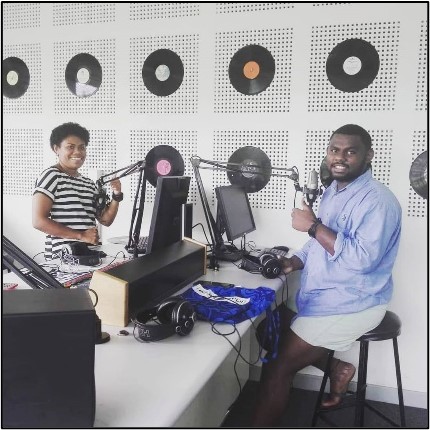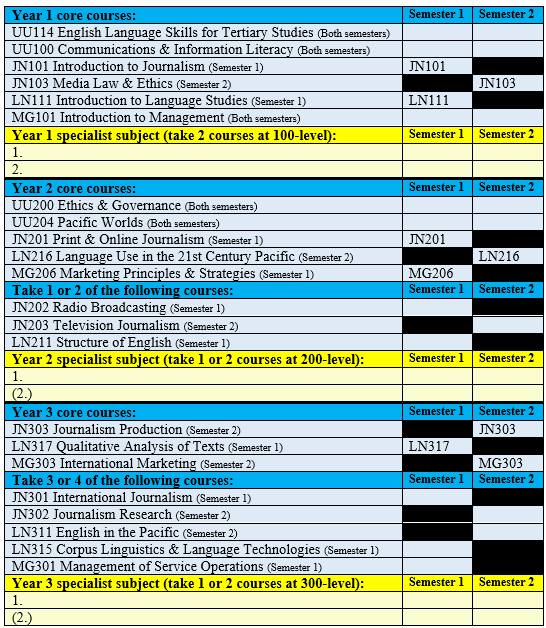BA Communication and Media

The BA in Communication & Media is a 24-course programme that combines courses from Journalism, Linguistics, Marketing and Management with a specialist subject in a field of your choice. It gets you ‘workplace-ready’ with job application training, a workplace attachment, and a range of digital, communication and research skills built in. You will be able to target jobs in communication, media, digital media, marketing, public relations and communications management. You can choose any subject that interests you for the specialist subject, but must seek advice approval from the programme coordinator before registering for these courses.
| 2024 Programme Orientation (Week 2) |
Frequently Asked Questions
FAQ’s – BA Communication & Media
Programme Planner
Programme planner (required for specialist subject approval)
Courses available for the specialist subject
Handbook & Calendar (look through the courses offered in the back half of the book)
Queries
The programme coordinators for the BA in Communication and Media are Dr Shailendra Singh (Journalism, shailendra.singh@usp.ac.fj) and Dr Fiona Willans (Linguistics, fiona.willans@usp.ac.fj). Please contact either of them for any queries, or contact Mrs Antoinette Parker (antoinette.parker@usp.ac.fj) for general enquiries about studying in SPACE.
